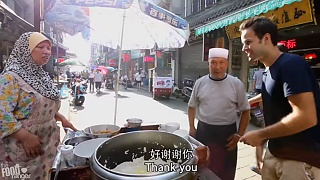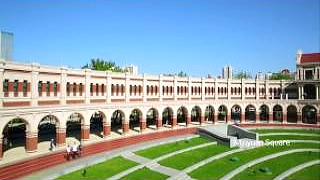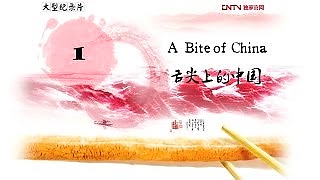Tianjin, located in northeastern China and just a short train ride from Beijing, is a bustling metropolis with a rich history, vibrant culture, and a unique blend of Chinese and Western influences. Here's a guide for tourists visiting Tianjin:
Historical and Cultural Attractions:
Tianjin Ancient Culture Street (Guwenhua Jie): This pedestrian street is lined with traditional Chinese-style buildings and shops selling arts, crafts, and souvenirs. Visitors can also enjoy street performances, local snacks, and cultural activities.
Tianjin Eye: This iconic Ferris wheel offers panoramic views of the city skyline and Hai River. It's especially stunning at night when the city lights are illuminated.
Italian Style Street (Wudadao): Located in the former British concession area, Wudadao features over 2,000 European-style buildings dating back to the late 19th and early 20th centuries. Visitors can admire the architecture, visit cafes and boutiques, and take guided tours to learn about the area's history.
Porcelain House (China House): This unique attraction is a mansion adorned with millions of porcelain fragments, creating intricate mosaics and sculptures. It's a fascinating example of modern Chinese art and architecture.
Modern Attractions:
Tianjin Binhai Library: Known for its futuristic design, this architectural marvel features a massive spherical auditorium surrounded by bookshelves that appear to float in mid-air. It's a must-visit for architecture enthusiasts and book lovers alike.
Tianjin Haihe Cultural Square: This waterfront promenade along the Hai River is a popular spot for leisurely strolls, boat rides, and cultural events. Visitors can enjoy views of the city's landmarks, including the Tianjin Eye and the Tianjin TV Tower.
Culinary Delights:
Tianjin Cuisine: Sample local specialties such as Goubuli Baozi (steamed buns filled with meat and vegetables), Jianbing (Chinese-style crepes), and Erduoyan Fried Dough Twists (a crispy snack made from twisted dough).
Guifaxiang Mahua: These twisted, fried dough snacks are a beloved Tianjin delicacy. Visitors can watch as vendors prepare them fresh on the spot and enjoy them hot and crispy.
Practical Tips:
Transportation: Tianjin has a well-developed public transportation system, including buses, subways, and taxis. The city is also easily accessible by high-speed train from Beijing and other major cities.
Language: Mandarin Chinese is the official language, but English may not be widely spoken outside of tourist areas. It's helpful to learn a few basic phrases or carry a translation app.
Weather: Tianjin has a temperate climate, with hot, humid summers and cold winters. The best times to visit are in the spring and autumn when the weather is mild and comfortable.
Tianjin offers a fascinating mix of historical charm, modern attractions, and culinary delights, making it a rewarding destination for tourists. Whether you're exploring ancient streets, admiring futuristic architecture, or savoring local flavors, Tianjin has something to offer visitors of all interests.
Chinese cuisine is an intricate tapestry of flavors, techniques, and regional specialties that has evolved over thousands of years. From the fiery spices of Sichuan to the delicate dim sum of Cantonese cuisine, every region of China offers its own culinary delights. For visitors to China, exploring the diverse and dynamic world of Chinese food is an essential part of experiencing the country's rich cultural heritage. Here's a more extensive exploration of Chinese cuisine for visitors:
Regional Diversity:
Sichuan Cuisine: Hailing from the southwestern province of Sichuan, this cuisine is famed for its bold, spicy, and numbing flavors. Sichuan peppercorns, chili peppers, and aromatic spices are used liberally in dishes like Mapo Tofu, Dan Dan Noodles, and Sichuan Hot Pot, creating a symphony of flavors that tingles the taste buds.
Cantonese Cuisine: With its emphasis on fresh ingredients and delicate flavors, Cantonese cuisine is highly regarded for its seafood dishes, roasted meats, and dim sum. Steamed fish, Char Siu (barbecue pork), and Har Gow (shrimp dumplings) are just a few examples of the exquisite dishes that showcase Cantonese culinary mastery.
Shanghai Cuisine: Reflecting its coastal location and cosmopolitan history, Shanghai cuisine combines influences from Jiangsu, Zhejiang, and Anhui provinces. Sweet and Sour Mandarin Fish, Shanghai Soup Dumplings (Xiaolongbao), and Drunken Chicken are some of the signature dishes that highlight the diverse flavors and textures of this culinary tradition.
Beijing Cuisine: As the capital of China, Beijing boasts a rich culinary heritage deeply rooted in imperial traditions. Peking Duck, a dish with crispy skin and succulent meat served with pancakes and hoisin sauce, is a quintessential Beijing delicacy. Other notable dishes include Zhajiangmian (Beijing Noodles), Mongolian Hot Pot, and Beijing-style meat pies.
Hunan Cuisine: Known for its bold and aromatic flavors, Hunan cuisine features dishes that are spicy, sour, and intensely flavorful. Chairman Mao's Red-Braised Pork, Dong'an Chicken, and Steamed Fish Head with Chopped Chili exemplify the fiery and robust nature of Hunanese cooking, which makes ample use of chili peppers, garlic, and fermented ingredients.
Street Food and Snacks:
Jianbing: This savory Chinese crepe is a popular breakfast option, consisting of a thin pancake filled with eggs, scallions, cilantro, and various fillings such as crispy fried dough, pickled vegetables, or chili sauce.
Baozi: These steamed buns are filled with a variety of savory or sweet fillings, including pork, vegetables, or red bean paste. Baozi are a popular street food snack and can be found in teahouses, markets, and street stalls across China.
Roujiamo: Often referred to as Chinese Hamburgers, roujiamo features savory braised meat stuffed inside a flatbread, offering a hearty and flavorful snack that's perfect for on-the-go eating.
Dining Etiquette and Customs:
Family-Style Dining: Chinese meals are typically served family-style, with multiple dishes shared among diners seated around a table. It's customary to use chopsticks to pick up food from communal dishes and to serve elders before oneself.
Toasting and Ganbei: When dining with Chinese hosts, expect toasts (ganbei) with alcohol, usually baijiu (Chinese liquor). It's polite to reciprocate the toast and drink in moderation, but declining politely is acceptable if you don't drink alcohol.
Tea Culture: Tea is an integral part of Chinese dining culture, with a wide variety of teas available to complement different dishes. Green tea, oolong tea, and pu'er tea are among the most popular choices, and serving tea to guests is a sign of hospitality and respect.
Street Markets and Night Markets:
Wangfujing Snack Street, Beijing: Located near the Forbidden City, this bustling street market offers a wide variety of traditional snacks, street food, and local delicacies. Visitors can sample everything from scorpions on a stick to traditional Beijing snacks like Jianbing and Tanghulu (candied fruit skewers).
Shanghai Old Street, Shanghai: Nestled in the heart of the city's historic district, Shanghai Old Street is a bustling marketplace where visitors can explore narrow alleyways lined with traditional shops, street vendors, and food stalls. From steamed dumplings and stinky tofu to hand-pulled noodles and sugar-coated haws, there's something to satisfy every craving.
Dietary Considerations:
Vegetarian and Vegan Options: While Chinese cuisine traditionally features a wide range of meats and animal products, vegetarian and vegan options are becoming increasingly available, especially in larger cities and tourist destinations. Buddhist restaurants (????, s�sh� c?nt?ng) often offer meat-free versions of classic dishes, and plant-based ingredients like tofu, mushrooms, and seasonal vegetables are widely used in Chinese cooking.
Exploring the diverse and delicious world of Chinese cuisine is an essential part of any visit to China. From regional specialties and street food snacks to dining etiquette and cultural customs, the culinary landscape of China offers a rich tapestry of flavors, traditions, and experiences that are sure to delight and inspire visitors from around the world. Bon app�tit!.

 Street food breakfast tour in TianJin 天津
Street food breakfast tour in TianJin 天津

























